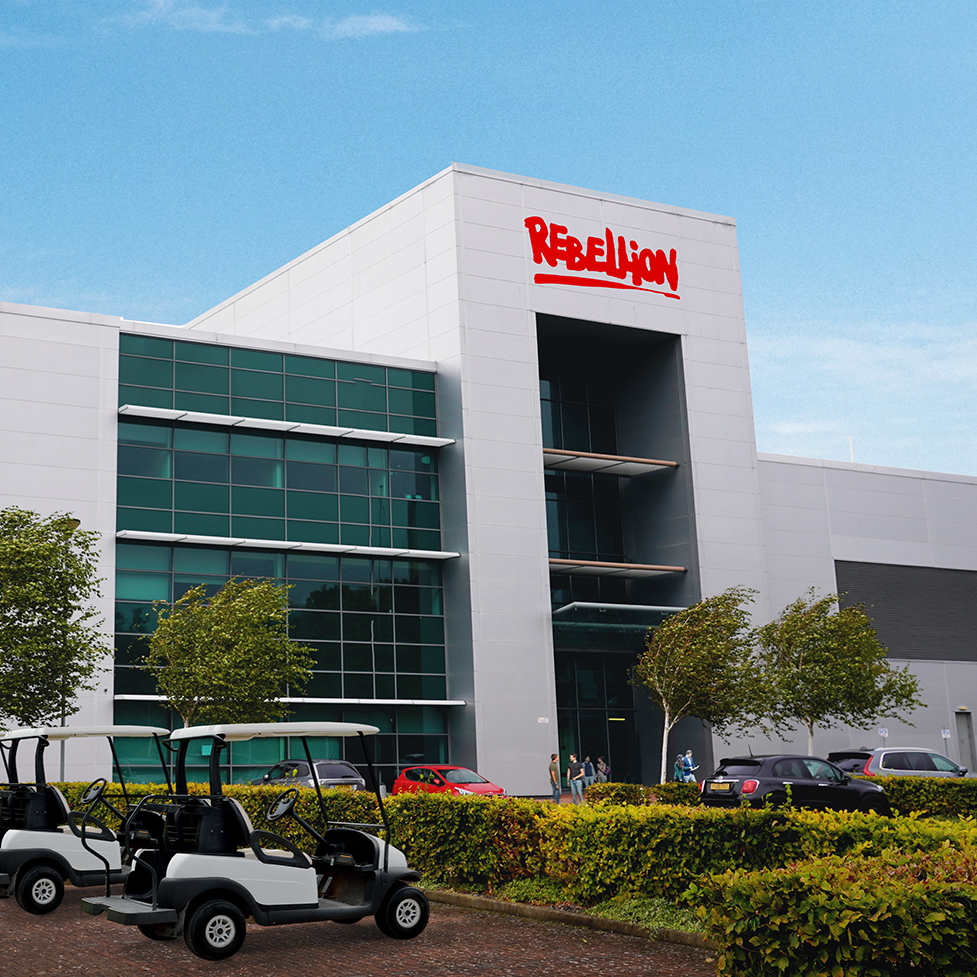Rebellion to Open Doors on £78.4m Film & TV Studio
by on 27th Nov 2018 in News

Long-standing independent UK game developer and publisher Rebellion has purchased a facility to convert into a film studio, estimated to be worth USD$100m (£78.4m).
That might not seem the most obvious purchase for a video game company, but Rebellion has always confidently expanded its remit beyond its core business. The move equally reflects an ongoing convergence of the industries of game development, film, and television. That convergence to date has been defined most apparently by crossover in technique, technologies, and creative approach – trends that Rebellion's move may further foster. The purchase could also be seen as an assertion of confidence in the UK creative industries.
Rebellion, which is known for games including Sniper Elite and Battlezone VR, expects the move to create 500 jobs. The facility is located close to the studio's existing HQ, as well as the facilities of the motion capture outfit it acquired in picking up AudioMotion in 2003. Open with immediate effect, the TV and film production space will be at full capacity in early 2019.
The 220,000 square-foot facility will initially be used for the production of Rebellion's Judge Dredd TV sci-fi drama Mega-City One, and the future-war feature Rogue Trooper, which has Moon director Duncan Jones on board. In 2000, Rebellion acquired iconic British comic 2000 AD, and its entire character portfolio, making it both the owner of IPs such as Judge Dredd and an established print publisher.
The site close to Oxford was formerly a print works, which according to Variety means it is already heavily soundproofed, presumably to minimise the noise of the former occupant's large machinery. That is hoped to make converting the facility to a number of sound stages a less complicated process. The sound stages – including one at a 25,000 square-foot volume – will be made available along with the rest of the facility to other entertainment companies.
“This studio purchase is incredibly exciting, not just for Rebellion but for the global film and television industry that is booming but in desperate need of further infrastructure to cope with the demands for new and engaging content", said co-founder and CEO Jason Kingsley.
“We know firsthand the creativity and talent here in the UK; and this new studio will bring in projects from all over the world, offering opportunity and income to many people in the industry, as well as local companies and services. It also means there will be demand for more UK production and we can export more of our work globally.”

Rebellion's expansive new facility
Co-founder and CTO Chris Kingsley added: “The levels of growth in television content for streaming services, such as Netflix and Amazon, have been astronomical in recent years. The demand for ongoing original content is bigger than ever and we’re seeing more big players wanting to get in on the action. This is very exciting for the domestic and global film industries, but it’s also meant that our infrastructure is under increasing pressure.
“The new studios will help relieve some of that pressure, whilst also adding to the growing figures of people employed in the UK film and TV industry, which has increased by 20% in the last five years. Our creative industries are appealing to other markets for our talent and generous tax reliefs – and we must ensure we have the studio space and infrastructure to keep furthering this ongoing growth.”
Media convergence is hardly a new topic – academics have explored its merits and evolution since at least the 1980s. But much focus over the years has been on mediums merging; films and games, for example, becoming one and the same thing. That has happened in some cases, of course – as seen in examples like the live broadcast mass-participation quiz show mobile game Trivia HQ – but it is much more striking to see the production processes and conventions merge.
Film and TV companies now use game development tools. Game studios are increasingly adopting the contracting models established in broadcast. Staff and knowledge are shared across the sectors. And motion capture in particular spans the forms, making the likes of casting and directing as relevant to game making today as to film and TV.
What that means for the likes of ad tech and user acquisition is that advertising and marketing forms, old and new, are also moving between the mediums. That's a topic we'll certainly return to here at TheGamingEconomy.







Follow TheGamingEconomy